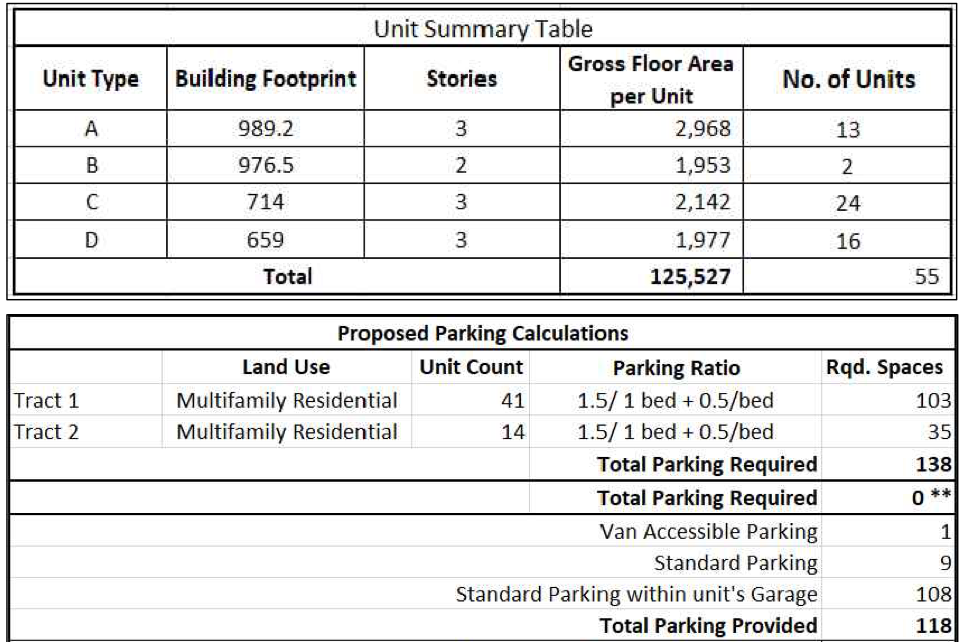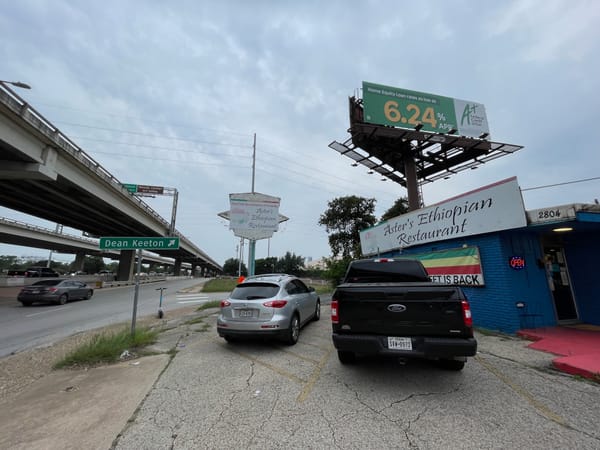Pool politics
An instructive debate about a pool variance.

A discussion at the Planning Commission last week over a swimming pool was a fitting example of the difference in attitudes towards the city's land use regulations and the concept of "community benefits."
A 55-unit condo development is planned at 1517 Kramer Lane. The property owner needed to get a waiver from the city in order to build a pool that will come within 25 feet of the property line of another condo community next-door. The regulations typically require at least 50 feet of distance for condo developments (but not for single-family homes).
City staff recommended granting the variance, but some residents of the next-door condos were unhappy, arguing that the pool would be a nuisance. I can't imagine why a pool 50 feet away would be acceptable but one 25 feet away would be a tremendous problem; the only explanation for the neighbors' behavior that makes sense to me is that they saw an opportunity to kill the pool altogether.
The great majority on Planning Commission were ready to grant the variance, but Commissioners Alberta Phillips and Adam Haynes, both appointees of Kirk Watson, voiced deep offense that the developer wouldn't do something in exchange for the "favor" being requested.
When asked if they were willing to offer "community benefits" in return for the variance, Alejandra Flores, an engineer for the developer (and coincidentally a member of the Zoning & Platting Commission), noted that the development would lead to improved drainage and new sidewalks. As for the pool, it's an amenity for the future families that will live there, she said.

"I'm not talking about your community that's going to move there," replied Phillips, who clarified that she was referring to the next-door neighbors.
"I'm just asking for any (benefits) that you might provide to work with the neighbors because they're losing something and we are certainly granting you a favor."
What exactly are they losing? Phillips and Haynes repeatedly said they were losing a "property right." This is the same confused reasoning that has underpinned the past five years of challenges to zoning reform. Somehow people have gotten it into their heads that if a neighbor's property rights increase (he can build a pool, for instance), yours decrease. It's as if property rights is a zero sum game –– there are only so many rights to go around!
Haynes and Phillips also wanted to know how much the future units would cost and whether the pool was necessary to make the development work.
The owner's failure to provide details about the listing prices was evidence to Phillips that they weren't being "transparent" and "not a nice thing."
To Haynes, "The fact that they've already sold 33 of these units and don't know what the units are going to sell for, it's a little bit sus, as the kids say."
It might be sus, but it also doesn't matter. The role of the Planning Commission to make sound land use decisions, regardless of what you think of the applicant personally.
Once upon a time, the reasoning promoted by Haynes and Phillips may very well have won the day at Planning Commission. It's a relief that that's no longer the case.
Commissioner Ryan Johnson said it well:
"This is a waiver from a rule that is frankly pretty silly. The notion that a swimming pool closer than 50 feet to a property line will somehow cause harm to anyone is just farcical, in my mind."
"It kind of blows my mind that we're having a 45-minute debate about whether a condo complex should be able to have a pool 40 feet away from their neighbor with dozens of trees and a fence in-between."
"Let them have a pool. It's Austin. It gets hot. I want people to live in nice places and have nice things. And they're going to build this no matter what. why not let these 55 households have a pool they don't have to pay for at the YMCA or drive miles to one of our public swimming pools."
Haynes replied, "If the owner is going to come to us and ask for a waiver, even if it's farcical, even if it's antiquated, even if it's outdated, it is the law and we are tasked with upholding the law."
Well ... they are upholding the law by granting the waiver specified by the law!
The attitude exhibited by Haynes and Phillips is the one that was previously championed by growth-skeptic members of Council: Kathie Tovo, Ann Kitchen, Alison Alter and (formerly) Leslie Pool. It regards whatever the legal status quo –– no matter how unjust or illogical –– as something that developers must pay and squirm to get out of. It also does not acknowledge any "benefit" to new market rate housing or new tax-generating development.
Anyway, it's interesting to remark on how sharply Watson has departed on land use from his appointees to the Planning Commission. Technically he also re-appointed YIMBY Chair Awais Azhar, but only after some serious arm-twisting. Just like his campaign for mayor, many of his land use appointments were geared towards currying favor with single-family stalwarts. And yet, when it really counts, he has sided with YIMBYs on every housing issue.
The effect of parking policy
In looking over the plans for the development, I noticed this table on parking. It appears that the tables still sort of reflect the old parking requirements, but that a new line has been added to clarify that no parking is actually required.
Regardless, you can see that despite the absence of requirements, the developer is still going to build 118 parking spaces for 55 units. That's still a ton –– but 20 fewer spaces than would have been required a year ago. Progress!

If somebody forwarded you this email, please consider subscribing to the newsletter by visiting the website.





